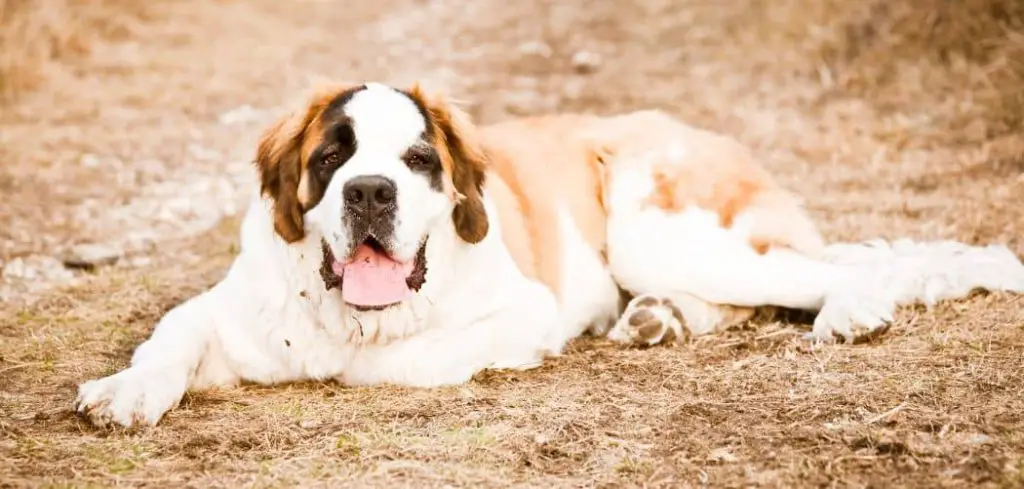When your dog is both panting and licking—whether it’s their lips, paws, or the air—it may indicate a deeper issue than just being hot or thirsty. These repetitive behaviors often signal discomfort, nausea, anxiety, or more serious underlying conditions.
We outline the common causes of dog panting and licking, what you can do at home, and when to seek veterinary help.
Dog Panting and Licking — Why It Happens
Panting combined with excessive licking is often a sign of nausea, stress, pain, or internal discomfort. Dogs instinctively lick to soothe themselves, and when paired with panting, it may suggest something more than just heat or exertion.

Common Causes of Dog Panting and Licking
Nausea or Gastrointestinal Upset
Dogs often lick their lips or the air when they feel nauseous.
Panting may accompany nausea as the dog becomes uncomfortable or anxious about the sensation.
Common triggers include dietary indiscretion, motion sickness, toxins, or underlying conditions like pancreatitis.
Watch for vomiting, drooling, grass-eating, or loss of appetite.
Veterinary evaluation may include blood tests, X-rays, or treatment with anti-nausea medications.
Anxiety or Stress
Panting and licking are both common signs of canine anxiety.
Triggers might include loud noises, changes in routine, new environments, or separation from owners.
Dogs may lick their lips repeatedly, pant heavily, tremble, hide, or become clingy.
In chronic cases, excessive paw licking or self-grooming can lead to irritation or infection.
Behavioral modification, calming aids, or medications may be needed for long-term management.
Dental Pain or Oral Discomfort
A dog experiencing mouth pain may lick frequently while also panting from distress.
Causes include broken teeth, gum disease, oral infections, or objects stuck in the mouth.
You might notice drooling, difficulty eating, bad breath, or pawing at the mouth.
An oral exam and dental cleaning under anesthesia may be necessary to relieve discomfort.
Heat and Dehydration
Panting is a primary cooling mechanism in dogs, and licking may increase if they’re hot and seeking relief.
Dogs may lick cool surfaces, water bowls, or themselves in an attempt to cool down.
Always ensure fresh water is available and avoid high heat conditions.
If panting persists even in cool environments, it may signal something more serious.
Neurological Conditions
Some neurological issues can cause repetitive, compulsive behaviors like licking.
Paired with panting, this may suggest seizures, cognitive dysfunction (dog dementia), or brain-related issues.
Look for signs such as disorientation, head pressing, pupil changes, or circling.
Diagnosis may require neurological exams, imaging, or specialty care.
Read more: Dog Panting and Shaking (Common causes)
Toxin Exposure or Allergic Reaction
Dogs may pant and lick excessively after exposure to a toxic substance or allergen.
Licking may be a response to mouth irritation or nausea, and panting can occur from systemic distress.
You may see swelling, vomiting, facial rubbing, or red skin.
Immediate veterinary intervention is critical if toxin exposure is suspected.
What to Do If Your Dog Is Panting and Licking
Start by observing when the behavior happens—is it after eating, during storms, at night?
Check their mouth for foreign objects, swelling, or dental problems.
Offer fresh water and a quiet place to rest, avoiding excitement or heat.
Avoid scolding or punishing the behavior—it may be a sign of internal distress, not disobedience.
If the behavior is frequent, prolonged, or worsens, contact your veterinarian for a full workup.
When to Call or Visit Your Vet
Seek professional help if your dog:
Repeatedly licks and pants for over an hour without relief
Shows signs of nausea, vomiting, or drooling
Has bad breath, swollen gums, or oral bleeding
Displays anxious or compulsive behaviors
Is older and may be developing cognitive changes
Early intervention can help uncover and treat the underlying cause.
Read more: Dog Panting and Licking Lips (What it really means and when to worry)
Key Takeaway
When your dog is panting and licking excessively, it’s more than just a quirky behavior—it could be a sign of pain, stress, or illness.
By observing closely and involving your veterinarian, you can help uncover what’s going on and get your dog the relief they need.
Don’t wait if something feels off—your dog is trying to tell you something important.
